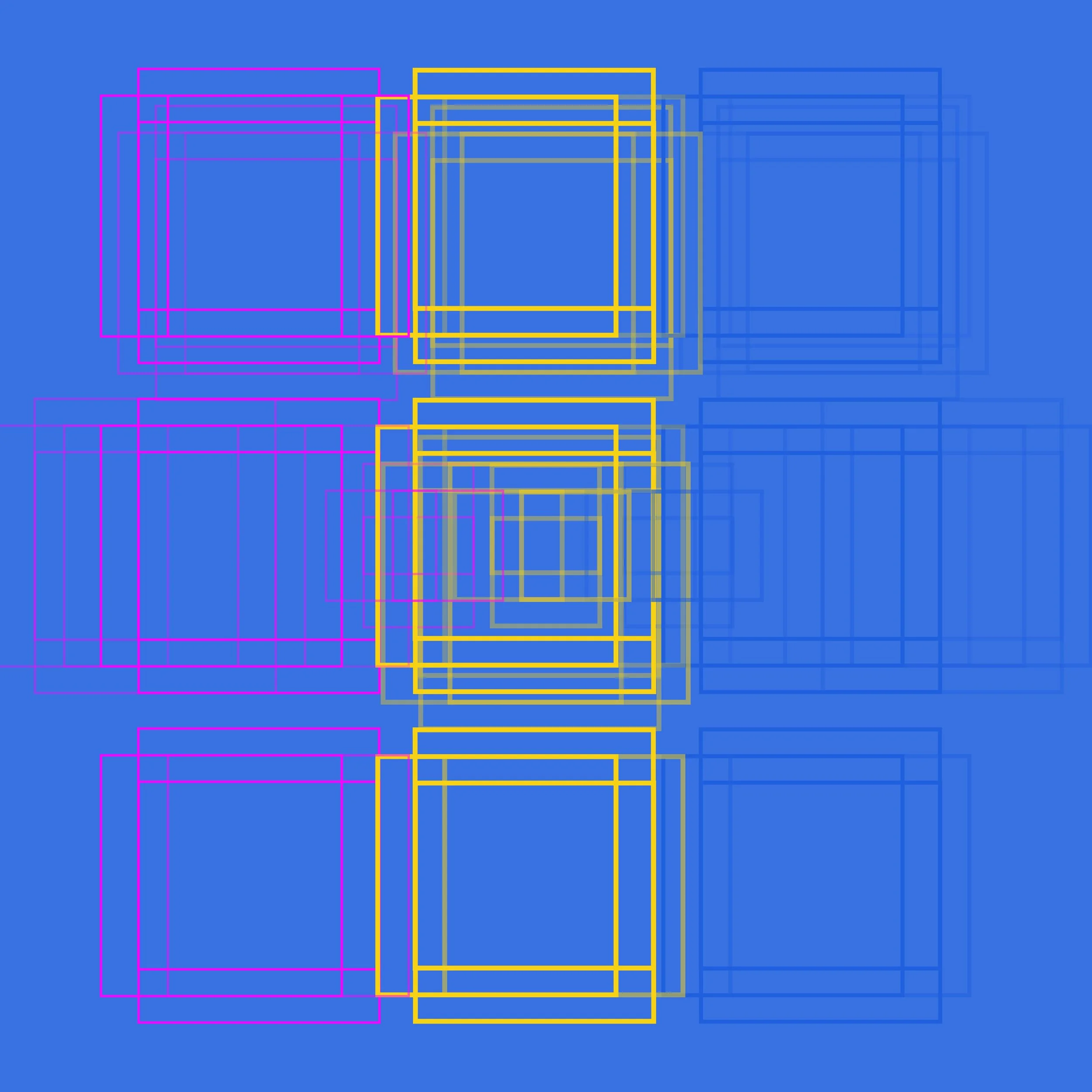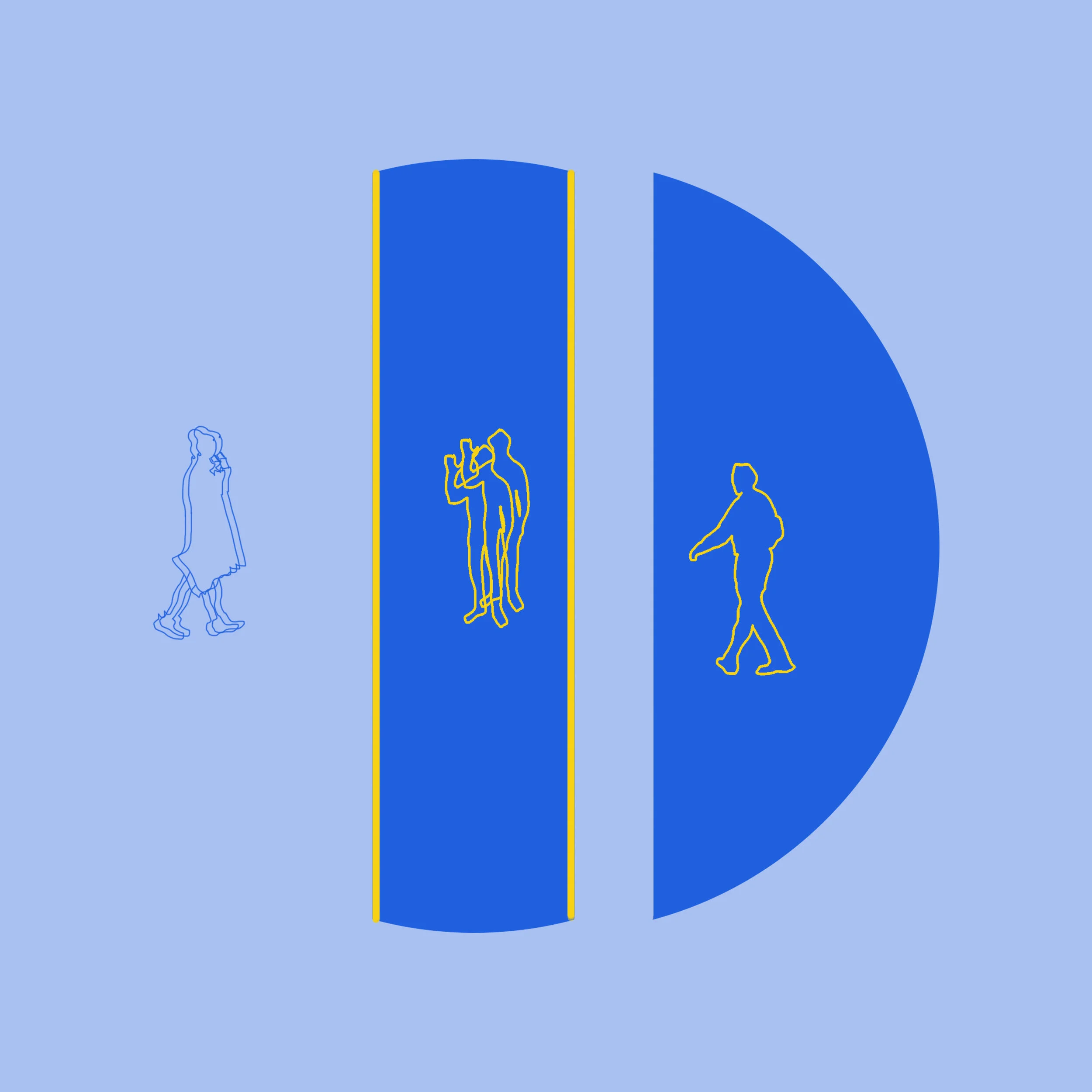Digital Art and Its Role in Radicalising Political Consciousness
Can digital art provide solutions that can be carried forward into real life politics? This article explores the transformation of digital art by the Coronavirus pandemic, and questions what these changes mean for the working-class, the oppressed minorities and political consciousness from an anti-imperialist standpoint.
Illustration by Sophia Cakova
Sectarianism, fed by fanaticism, is always castrating. Radicalisation, nourished by a critical spirit, is always creative. Sectarianism makes myths and thereby alienates; radicalisation is critical and thereby liberates. Radicalisation involves increased commitment to the position one has chosen, and thus ever greater engagement in the effort to transform concrete, objective reality. Conversely, sectarianism, because it is myth-making and irrational, turns reality into a false (and therefore unchangeable) 'reality'“- Paulo Friere, Pedagogy of the Oppressed (1)
Art, when done well, has the potentiality to liberate us from the necessity of action for the sake of production and accumulation. Done for ourselves, art becomes play and often in its ‘being-for-itself’ calls out the absurdities of our day-to-day lives. It is immovable, and in its rudeness both mocks and reconfigures the real to its own wishes. It offers a glimpse of a future where we don’t have to put ourselves to sleep in a job we can barely bring ourselves to go to. It can be a porthole through which we are liberated from corporate subservience, landlords and Universal Credit cuts, a space where we are free to attain what we desire mutually and identify as what we truly are - without those above dictating what they deem to be correct or stigma scaring us into performative “normality”.
With imperialism exponentially driving us into deeper and deeper crises, we, the working-class, find ourselves bereft of any space left available for us to occupy or inhabit as our own. The looming heads of discrimination, directed by police and parliamentary powers leave us isolated by every means. With unemployment and poverty soaring, students working 50+ hours a week to be able to eat, staff shortages due to long-Covid and climate change set to cause irrecoverable damage to the planet by 2030 - the only promise we have been guaranteed is that of further austerity. What are we going to do about it? Who will reclaim these spaces? And what will be the means by which we reclaim them?
The pandemic created the necessary material conditions for art to revolutionise its means of production. With the whole globe suffering from sickness and claustrophobia, isolated in our homes, two things happened: one, the internet and social media became the only means by which we could effectively communicate; two, the way we perceived space was transformed, with no ability to inhabit IRL, a digital stage was created. Our physical attendance was no longer required, working from home or on furlough, with seminars hosted on the newly emerging Zoom, we became dependent on the screen as a way to navigate and function. Starved of interaction, artists created their own spaces, giving their ideas and emotions flesh in the form of polygons and vertices, sprouting mental landscapes in which they felt safe and free, birthing avatars which operated as new bodies to live and experience through.
Away from public spaces, digital communities containing artists from across the globe came together. One such example, SPUR.WORLD (2) came about from a residency containing twelve core artists and a belt of community players. The initial premise was to create avatars which players were per-formatively reborn through, with the intention to free each other from the confines of IRL and provide the opportunity for individuals to reinvent their perceptive and communicative mediums. What resulted was a core world, littered with portals which were in turn populated with mementos that were dredged up through these network-based dialogues. This escapism, whilst temporary, brought remnants through to the other side, leaving our IRL spaces riddled with nostalgia for digital landmarks; and the relationship between the physical and digital worlds blurred.
Severed from commercial galleries and universities, we are able to create our own unmediated channels - where no one can censor or demand respectability in an attempt to sanitise ideas they find disagreeable or in conflict with their material interests. It is through these channels that minority groups can be offered a space away from capitalist systems in which to comfortably de-mask and grow themselves.
Somewhere I myself have seen these concepts executed best is in the works of black trans artist Danielle Brathwaite-Shirley. Embodying ancestral rituals and calling upon the bodies of those lost to discrimination, Brathwaite-Shirley through her practice directly confronts the capitalist alienation and stigmatisation of trans and black lives. Her work provides the promise of an alternative landscape where we no longer have to suffer, a place where we are safe and free to be ourselves without hiding, a place where we ‘do not have to pass’. BLACKTRANSARCHIVE.COM (3) is a glitch-infested, suppurating digital architecture, littered with the infrared veins of motherboards, utilising the virtual as a means by which to archive memories, store spirits and relive experiences. The virtual as a means of resurrection in the acknowledgement that those once lost still have the potential to rise again through us. The virtual as a way of infecting IRL with radical perspective. We see again in PIRATING BLACKNESS (4) a space provocatively satirical of our current political and social climate. Brathwaite-Shirley calls upon the people’s history of colonisation and slavery and provides the opportunity to the viewer to reclaim and repurpose these memories and experiences. Her work is necromantically alive. It demands of you to remember, to repurpose loss as a tool for growth in the future. To forget is to submit. Our consciousness as a mass of oppressed peoples is the only tool of our liberation, and consciousness is the driving force behind change.
Digital art, then, must be used as a space to stage what Paulo Friere termed ‘problem-posing education’ (5). It should be used as a place away from sectarianism, from influences which seek to submerge and disarm us - in replacement we must offer somewhere open and free. A space in which each of us can educate and be educated by each other so that we can strive for the emergence of a radical and liberating consciousness which we can then take and apply to transform concrete, objective reality. We must be careful however not to separate the digital from physical reality, and understand the influence that each has on the other. The knowledge we gain in these new spaces must be applied to the streets in a revolutionary grassroots movement.
Pushed into the realm of the digital by the crisis of the pandemic, the means of production of art is being transferred into the hands of its creators. Already we can see the beginnings of an exodus away from high-culture monopoly galleries, and a focus instead on community engagement, with exhibitions and works hosted on local platforms created for the purpose of self-liberation and raising of consciousness. What we must now do is seek a platform away from the social media monopolies and be wary not to fall prey to the commodification of recently emerging NFT-ism. Art is the type of space that is often demanded to be apolitical, I think now is the opportunity to change this. It is our duty to imbibe all subjects with revolutionary working-class politics, to fight against the liberalisation of real-life issues. Going forward, we now each of us have the ability, and the responsibility, to create networks and platforms for the purpose of solidarity and emancipation. To produce to fulfil needs, not fill pockets. To bring together a creative community which is anti-capitalist and anti-imperialist and demands the right to self-determination.
References
1. Friere, P. (1972) Pedagogy of the Oppressed; Penguin
2. SPUR.WORLD: spurworld
3. Brathwaite-Shirley, D. (2020) BLACKTRANSARCHIVE.COM: BLACKTRANSARCHIVE.COM
Mysite (daniellebrathwaiteshirley.com)
4. Brathwaite-Shirley, D. (2020) PIRATING BLACKNESS: Artist | Danielle Brathwaite-Shirley
(daniellebrathwaiteshirley.com)
5. Friere, P. (1972) Pedagogy of the Oppressed; Penguin







